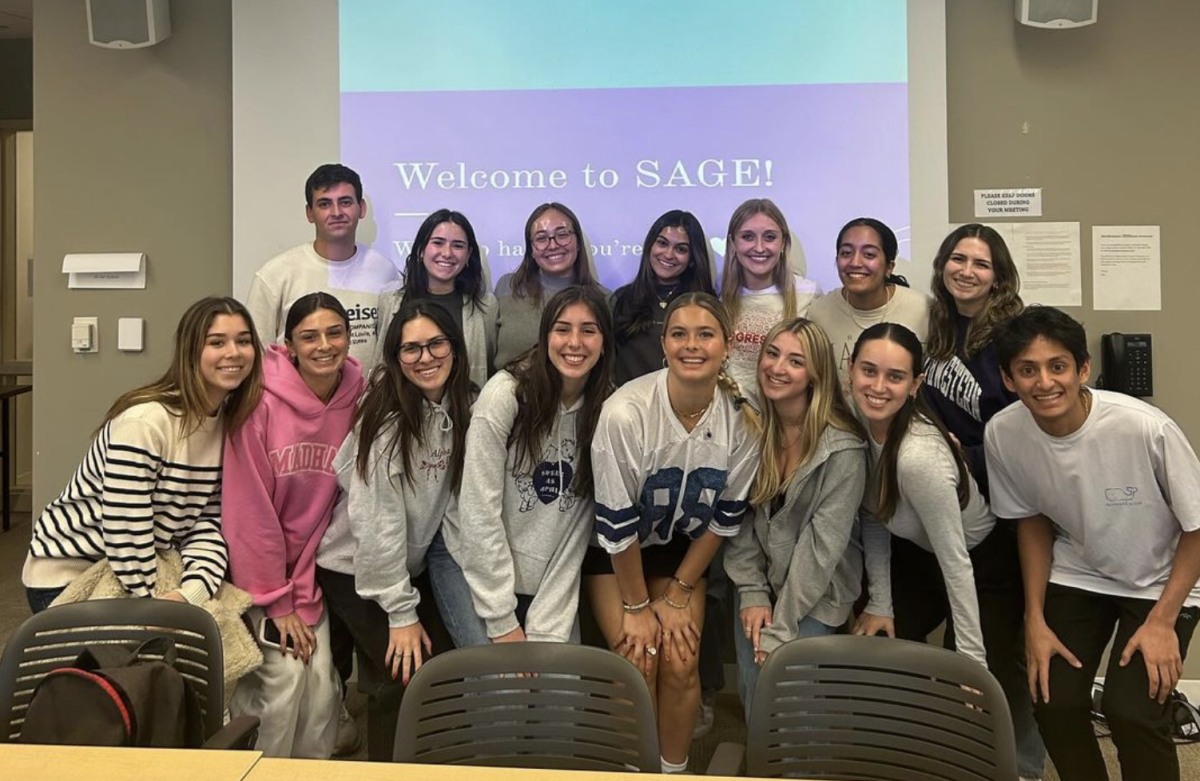As National Eating Disorders Awareness Week comes to a close, NU Active Minds hopes to continue its mission to have students think positively about themselves.
The NU Student Body Campaign encourages students to take pictures of themselves and submit them to NU Active Minds. To get the ball rolling, members of NU Active Minds took anonymous photographs of parts of their bodies accompanied by a marker board explaining what they like and then posted the images on the NU Active Minds Tumblr. NU Active Minds plans to create a display with these pictures.
Communication senior and NU Active Minds co-founder Jinny Lee said the NU Student Body Campaign originated because of National Eating Disorders Awareness Week.
“We wanted to bring a project to NU’s campus to get the whole community involved,” Lee said.
Lee said a picture of any body part that means something to a student can be submitted, whether it is a part of his or her body that he or she is confident or insecure about. She said NU Active Minds wanted to spread the message that all bodies are unique.
“We’re really trying to spam all the listservs right now and get people involved,” said Paula Bernhard, NU Active Minds’ public relations committee chair.
The Weinberg junior said she has been working on promoting the campaign through fliers, Facebook, Twitter and Tumblr and said NU Active Minds is considering extending the event.
“Obviously eating disorder stuff doesn’t just go away after this week,” Bernhard said.
A news release from The Alliance for Eating Disorders Awareness noted a rise in eating disorder behavior among college students. The press release also referenced Princeton University Health Services, which stated 30 percent of college students experience eating disorder symptoms sometime during college.
Weinberg sophomore Jessica Smasal, who has spoken at NU Active Minds panels, said she agrees with those figures.
“I think here at Northwestern there’s at least a third of girls who suffer from eating disorders,” Smasal said.
Having experienced an eating disorder in high school, Smasal said she is familiar with the signs. She said society considers dieting and thinness to be good things, which can make it more difficult to tell when someone has an eating disorder.
Smasal said she took a test during her treatment and saw herself as 40 pounds heavier than she really was. She said many girls experience this misperception known as body dysmorphia. Another issue Smasal sees with body image is the reluctance to talk about an uncomfortable issue.
“Sometimes the best place to talk about it is with your friends,” Smasal said.
Body image issues affect a large number of people, Smasal said, even though those people may not be struggling at the point of a disorder. Smasal also listed reasons for the increase in eating disorders among college students including unrealistic images of models.
“If you look at 10 years ago, airbrushing wasn’t as good as it is now,” Smasal said. “The girls in the media were still very perfect-looking, but now they are flawless.”
Another source of pressure, Smasal said, comes from college and economic situations.
“There’s so much more pressure to be perfect, in so many different ways,” Smasal said.
In the release, The Alliance for Eating Disorders Awareness said it found 85 percent of health providers and educators from an August 2010 study said the greatest challenge for college campuses was a lack of resources for fighting eating disorders. To combat this, The Alliance for Eating Disorders Awareness printed and distributed 15,000 national referral guides to U.S. eating disorder treatment centers at colleges and universities.
“I really do think we need a bigger push,” Bernhard said.
From the people she has known with eating disorders, Bernhard said many of them have tried different treatments, and each individual differs in his or her opinion of what is most effective. Making those options available will help those with eating disorders know where to go, Bernhard said.
Some resources Bernhard mentioned at NU include Counseling and Psychological Services, the student group NU Listens and the Women’s Center. Bernhard said NU Active Minds’ objectives aim to eliminate the stigma of mental health issues.
Smasal said many issues are shoved under a rug, and bringing them into the open will facilitate help among peers.
“The biggest, best thing we can do as a community right now is start the dialogue,” Smasal said.






